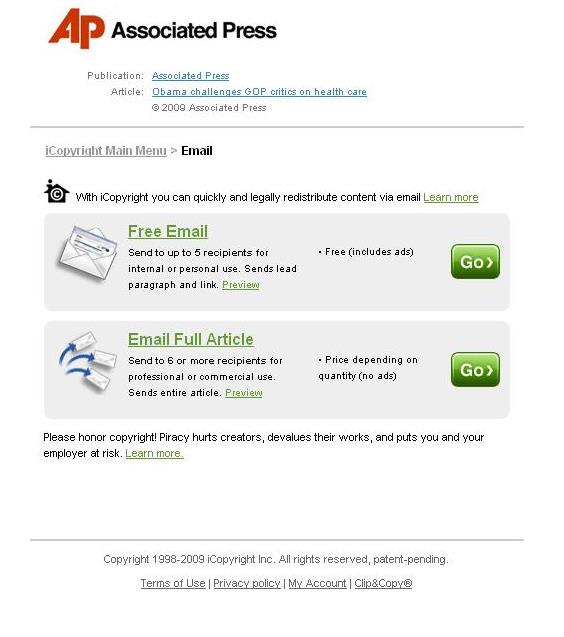
[digg-reddit-me]Matt Taibbi most famously posited that the financial crisis was the result of Goldman Sachs’ self-interested manipulations. He saw this single investment bank as the malevolent force behind the latest financial crisis – as well as speculative bubbles throughout history:
The world’s most powerful investment bank is a great vampire squid wrapped around the face of humanity, relentlessly jamming its blood funnel into anything that smells like money…The bank’s unprecedented reach and power have enabled it to turn all of America into a giant pump-and-dump scam, manipulating whole economic sectors for years at a time, moving the dice game as this or that market collapses, and all the time gorging itself on the unseen costs that are breaking families everywhere – high gas prices, rising consumer-credit rates, half-eaten pension funds, mass layoffs, future taxes to pay off bail-outs. All that money that you’re losing, it’s going somewhere, and in both a literal and figurative sense, Goldman Sachs is where it’s going: The bank is a huge, highly sophisticated engine for converting the useful, deployed wealth of society into the least useful, most wasteful and insoluble substance on Earth – pure profit for rich individuals.
As over-the-top as Taibbi’s description might be, it wasn’t wholly inaccurate. Putting aside the exaggerated, macho, Hunter Thompson-esque prose, and even Felix Salmon, a mainstream blogger and financial writer for Reuters, finds a great deal of truth in this portrait of Goldman Sachs:
I don’t agree with all of Taibbi’s article, but I’m surprised at how much of it I do agree with…
Adding credence to this portrait of a massive bubble-making machine were the recent best-ever quarterly profits by Goldman in the midst of a recession for the rest of the country. Graham Bowley and Jenny Anderson of the New York Times summarized this state of affair simply in their piece:
Most of Wall Street, and America, is still waiting for an economic recovery. Then there is Goldman Sachs.
The free market digest The Economist immediately saw the significance of these profits so soon after government aid:
For a firm that probably would have collapsed without government capital, debt guarantees and fast-track approval to turn itself into a commercial bank (not to mention a multi-billion-dollar payout as a counterparty of American International Group), such largesse is cheeky at best, distasteful at worst. It has already drawn rebukes on Capitol Hill, even though Goldman has repaid the government’s $10 billion preferred-equity investment.
That Goldman Sachs was going to be a big winner in all of this was pretty evident as early as October when I included this as one of the 11 lessons I learned while trying to figure out the financial crisis: “Goldman Sachs always wins.” What was evident already was that – as Russell Roberts pointed out in the Times – Goldman Sachs had “won” the bailout game:
It is deeply disturbing that Lehman Brothers was a long-time competitor of Secretary Paulson’s former firm, Goldman Sachs. It is equally disturbing that the chief executive of CIT, Jeffrey Peek, has been a contributor to Republicans rather than Democrats. This could be mere coincidence. But the current and ad hoc bailout strategy inevitably creates suspicion and destroys faith in our economic and political system.
Aside from Taibbi – who sees Goldman’s tentacles at the root of most of America’s worst economic moments through history – most observers do not see Goldman Sachs as the deliberate instigator of the current crisis. They see it instead as an opportunistic organization – one that navigated through the crisis with aplomb – as it saw its rivals vanquished and as it shored up its own business. It also played a significant role as the leader of the financial industry as it used political influence to push for various policies including a relaxation of regulation. The oversize influence of the financial industry should be the next Theory of the Financial Crisis I cover.
But the key point now is that Goldman Sachs – if successful in opposing most common-sense reforms – will be substantially to blame for the next crisis.
[Image by nydisccovery licensed under Creative Commons.]







